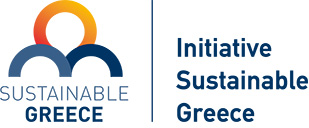How to Make Your Business More Socially Responsible
Corporate social responsibility (CSR) programs have been around for decades, but they've changed considerably over the years.
"Here's the thing: CSR is sort of dying, thankfully," says Don Tapscott, an innovation consultant and the fourth leading business thinker in the world, as ranked by Thinkers 50.
"Many CSR departments had reported into the communications group, and they were basically publicity," he adds. "They had this expression--you do well by doing good--and I don't think that that was true. Many companies did well by being bad... Traditional CSR, sometimes, was philanthropy; sometimes it was pure public relations; and sometimes it was sort of the conscience of the company to behave well and respond if there was a crisis."
So how do you do well by truly doing good?
1. Bury good into your business model
As the richest person in China (thanks to Alibaba's recent $25 billion initial public offering), Jack Ma may just be paying lip service to doing good, but he argues, "We should bury social responsibility into our business."
Some businesses have attempted to do this with new divisions. Outerwall, known for its network of Coinstar coin-cashing machines and Redbox video-rental kiosks, has been rolling out hundreds of ecoATMs. These machines spit out cash for old smartphones and other gadgets then help strip the devices for reusable parts or recycle them.
"[It's] good business but certainly good for the overall environment and really does line up with what we do at Outerwall around focusing on sustainability and investing back into the community," says Scott Di Valerio, Outerwall's CEO.
A couple of school and office supplies-focused upstarts have also tried to integrate social responsibility into their business models. Chalkfly's corporate giveback program works by converting 5 percent of a customer's purchase into store credit, which can be used by a teacher so that they don't have to pay for materials out of their own pocket. And Yoobi, borrowing from the Tom Shoes buy-one, give-one free or "bogo" model, donates a school supply item to a classroom in need every time someone purchases one.
But their tactics are by no means new to this industry--Staples and Office Depot have long touted their own giveback initiatives. So to truly stand out in this market, the most competitive CSR players will find ways to enhance their community outreach programs even further.
2. Target good talent
More startups and new businesses that hire millennials or other young workers are launching initiatives to support their communities "and getting that built in early, because it's important to attract that generation of worker [who] wants to be doing good while they're working," says Kerri Golden, co-founder and general partner of JOLT Fund, which provides seed capital and mentorship to early-stage businesses.
Indeed, 42 percent of professionals surveyed last year by the staffing agency OfficeTeam said an organization's participation in charitable activities influence their decision to work there.
Not sure how to properly structure a position in this area, or how to phrase a particular job listing? Take cues from organizations such as AirBnB and Net Impact, which advertise CSR or socially entrepreneurial positions via sites such as Skoll World Forum and Social Good Jobs.
3. Ensure (all of) your operations are doing good
Do-good programs do little good for a company's reputation among customers if executives fail to take care of their workers or the environment. Remember the Apple/Foxconn fiasco? Or the major clothing makers that relied on workers who died in the Bangladesh factory collapse?
"What's happened is because of transparency companies are becoming naked, so increasingly, if you're going to be naked you better be buff," says Tapscott, who spoke to Inc. after a recent event hosted by the University of Alberta. "So companies are starting to behave better not in the CSR sense but in the sense of imbedding integrity into their operations and DNA [and] into their supply chain. That's a big development."
"From my point of view," Tapscott adds, "it means that businesses can be pillars of society and can contribute in a positive way to solving global problems, which I don't think ever happened before. They just gave philanthropy."
Source: inc.com
Visit our site here.
"Here's the thing: CSR is sort of dying, thankfully," says Don Tapscott, an innovation consultant and the fourth leading business thinker in the world, as ranked by Thinkers 50.
"Many CSR departments had reported into the communications group, and they were basically publicity," he adds. "They had this expression--you do well by doing good--and I don't think that that was true. Many companies did well by being bad... Traditional CSR, sometimes, was philanthropy; sometimes it was pure public relations; and sometimes it was sort of the conscience of the company to behave well and respond if there was a crisis."
So how do you do well by truly doing good?
1. Bury good into your business model
As the richest person in China (thanks to Alibaba's recent $25 billion initial public offering), Jack Ma may just be paying lip service to doing good, but he argues, "We should bury social responsibility into our business."
Some businesses have attempted to do this with new divisions. Outerwall, known for its network of Coinstar coin-cashing machines and Redbox video-rental kiosks, has been rolling out hundreds of ecoATMs. These machines spit out cash for old smartphones and other gadgets then help strip the devices for reusable parts or recycle them.
"[It's] good business but certainly good for the overall environment and really does line up with what we do at Outerwall around focusing on sustainability and investing back into the community," says Scott Di Valerio, Outerwall's CEO.
A couple of school and office supplies-focused upstarts have also tried to integrate social responsibility into their business models. Chalkfly's corporate giveback program works by converting 5 percent of a customer's purchase into store credit, which can be used by a teacher so that they don't have to pay for materials out of their own pocket. And Yoobi, borrowing from the Tom Shoes buy-one, give-one free or "bogo" model, donates a school supply item to a classroom in need every time someone purchases one.
But their tactics are by no means new to this industry--Staples and Office Depot have long touted their own giveback initiatives. So to truly stand out in this market, the most competitive CSR players will find ways to enhance their community outreach programs even further.
2. Target good talent
More startups and new businesses that hire millennials or other young workers are launching initiatives to support their communities "and getting that built in early, because it's important to attract that generation of worker [who] wants to be doing good while they're working," says Kerri Golden, co-founder and general partner of JOLT Fund, which provides seed capital and mentorship to early-stage businesses.
Indeed, 42 percent of professionals surveyed last year by the staffing agency OfficeTeam said an organization's participation in charitable activities influence their decision to work there.
Not sure how to properly structure a position in this area, or how to phrase a particular job listing? Take cues from organizations such as AirBnB and Net Impact, which advertise CSR or socially entrepreneurial positions via sites such as Skoll World Forum and Social Good Jobs.
3. Ensure (all of) your operations are doing good
Do-good programs do little good for a company's reputation among customers if executives fail to take care of their workers or the environment. Remember the Apple/Foxconn fiasco? Or the major clothing makers that relied on workers who died in the Bangladesh factory collapse?
"What's happened is because of transparency companies are becoming naked, so increasingly, if you're going to be naked you better be buff," says Tapscott, who spoke to Inc. after a recent event hosted by the University of Alberta. "So companies are starting to behave better not in the CSR sense but in the sense of imbedding integrity into their operations and DNA [and] into their supply chain. That's a big development."
"From my point of view," Tapscott adds, "it means that businesses can be pillars of society and can contribute in a positive way to solving global problems, which I don't think ever happened before. They just gave philanthropy."
Source: inc.com
Visit our site here.

